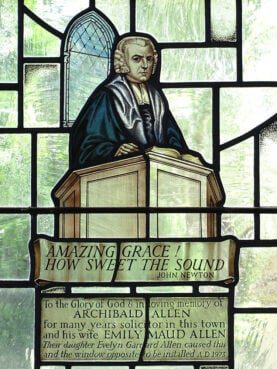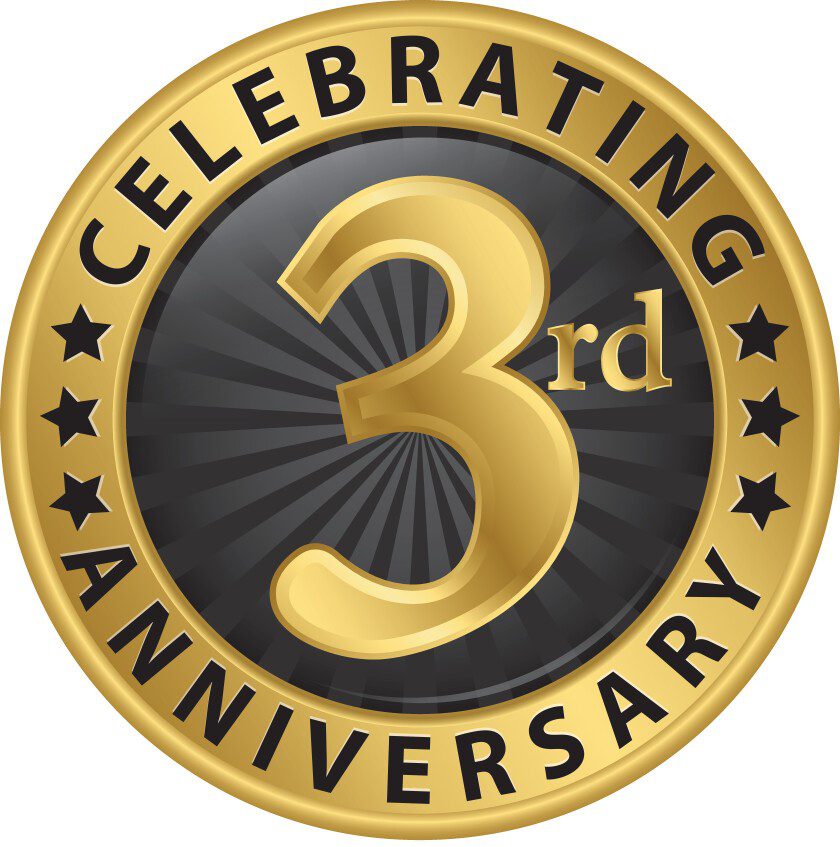Says author James Walvin: ‘its words speak to a human condition of suffering, and people coming out of suffering, and its music has a kind of haunting refrain that soothes.’
By Adelle M. Banks
(RNS) — James Walvin, a former Church of England choirboy and professor of history at the University of York, doesn’t remember encountering “Amazing Grace,” in song or in his hymnal. It wasn’t until he traveled to the United States to research the history of slavery that he came upon the hymn introduced by John Newton, a former slave trader, in 1773.

Since then, Walvin, the author of the new book “Amazing Grace: A Cultural History of the Beloved Hymn,” has submerged himself in the hymn, which turns 250 this year and has become a staple of Sunday services that has been adapted and adopted by preachers, performers, and presidents.
“I wasn’t too keen on Elvis’ version,” Walvin said after a recent visit to the Library of Congress’ “Amazing Grace” collection, which includes more than 3,000 recordings of the song — the only one of Newton’s hundreds of hymns that gained such international stature.
“I certainly was not keen on (1960s orchestra leader) Mantovani’s version,” he added. “I was amazed to listen to Janis Joplin’s version. I mean, who’d think of Janis Joplin and ‘Amazing Grace’?”
Among the thousands of versions, Walvin is especially fond of bass-baritone Paul Robeson’s but gives a nod to “Queen of Soul” Aretha Franklin as well as “a choir from Soweto, an extraordinarily haunting version of it,” saying they are all “effective in their own different, very distinctive ways.”
Walvin, 81, a longtime non-Christian who describes himself as “steeped in Christian morality,” spoke to Religion News Service about the hymn, its composer and the “electrifying event” when President Barack Obama drew on its power.
The interview was edited for length and clarity.
Why has “Amazing Grace” endured for 250 years?
“Amazing Grace” survived, particularly in the United States and especially in African American communities, because its words speak to a human condition of suffering, and people coming out of suffering, and its music has a kind of haunting refrain that soothes. It has a unique combination of important phraseology — words, verses — and beguiling music.
How do you explain the fact that John Newton, a former slave trader, wrote a hymn that’s treasured by enslaved people and their descendants?
I think young people find it very hard to get their heads around the fact that here is a hymn of great Christian significance written by a man who’s stained by the brutality and violence of slavery. It’s a historical paradox, really. But it extends beyond that hymn. There are millions of people at the time, on both sides of the Atlantic, ensnared in slavery, one way or another, who are deep Christians, God-fearing men and women who see no contradiction in their faith and their behavior toward Africans. And that’s one of the extraordinary, difficult things to understand.
You write that Newton spent years trying to become a Church of England priest before he was able to lead a parish and share his hymns. So, this song might never have reached the international stage?

Yes, it speaks to John Newton’s perseverance. To become a minister, you had to have gone to one of the two main universities, Oxford or Cambridge, and he hadn’t been close to either of them. He was not formally educated. Yet he was a deeply learned man, and a deeply religious man. He had to fight against the institutions and against the church to let him in.
Though most of the words are 250 years old, the tune we know best today is newer. How did that come about?
The music that we associate with “Amazing Grace” today is not what people sang for 60 years after Newton wrote it in (December) 1772. We know from the Lomax family — a father and son who recorded folk songs in the United States in the backwoods — that people sang the words through an extraordinary variety of songs. But it’s the music that we now know came together with the words in the 1830s that actually creates that combination that is so potent and so durable.
You trace the hymn’s growing stature as the radio and recording industries grew. Is there an apex? Maybe President Obama’s singing it in 2015, in his eulogy for Mother Emanuel African Methodist Episcopal Church’s Rev. Clementa Pinckney?
I think what Obama did was to tap into the familiarity and popularity of the hymn in the United States. Obama knew if he sang it on that particularly very emotive moment that he would secure the backing of this largely African American audience in Charleston. When he begins to sing, it looks as if it’s spontaneous, and no one would claim that President Obama has a good singing voice. But it is an astonishing moment. And if you look at the way the clerics behind him rise to the occasion, and the background musicians — they’re scrambling to get their instruments lined up and working with the president. He knew the congregation would follow him, and he knew that, by 2015, “Amazing Grace” had become effectively a second national anthem. Very few people don’t know it, don’t know of it, or don’t recognize it.
You note that advertisers have used “Amazing Grace.” Can you name some examples?
People sell candies. They sell doughnuts. They sell funeral plans with “Amazing Grace” in the background. Sometimes people don’t notice but it’s that subconscious music that somehow or other lulls people into a sense of appreciation for what’s being promoted.
“Amazing Grace” was part of the soundtrack of the civil rights movement. What role did it play in the life of the Rev. Martin Luther King Jr. in particular?
At the end of those long, grueling days, when he was exhausted, threatened by all kinds of horrible violence, as he was trying to unwind and relax in the evening, Mahalia Jackson would sing “Amazing Grace” to him on the telephone. If that isn’t an extraordinary insight into both those people, Jackson and King, I don’t know what is. Here is one of America’s great gospel singers and one of America’s great leaders, united in “Amazing Grace.”
While there are many performances of “Amazing Grace” that you praise, you call the use of a few of its lines by Jan. 6 insurrectionists “a shameless hijacking of a much-loved American song.”
It is interesting that a small section of the crowd tried to use the hymn, but they ran out of steam. No one knew the words after the first verse.
How have you celebrated the 250th anniversary?
The anniversary was launched in Olney in Buckinghamshire, which is where it was written and first performed on New Year’s Day in 1773. I was there. I talked about the hymn in this little village where this lovely church still exists — where Newton was the rector. I’m going to speak at the end of this year’s celebrations. (Earlier this month) I spoke at a care home in York to only 12 people. Old people mostly not really very alert for all the obvious reasons, but they wanted to hear me talk about “Amazing Grace.”
First published October 31, 2023


